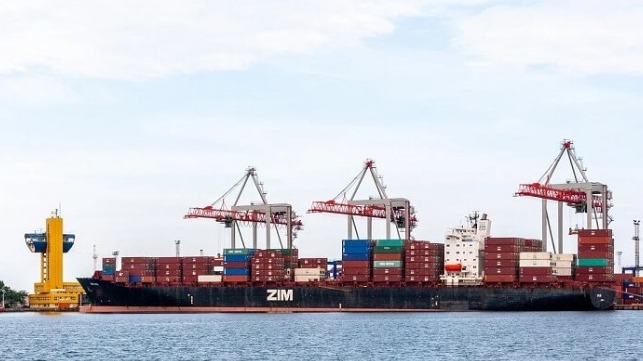ICS: Sanctions Could Affect Russian and Ukrainian Seafarers

The International Chamber of Shipping (ICS) warned Thursday that there is a risk of supply chain disruption if the free movement of Ukrainian and Russian seafarers is impeded because of the Russian invasion of Ukraine.
The most recent BIMCO / ICS Seafarer Workforce Report found that out of the world's 1.89 million seafarers, nearly 200,000 are Russians and 75,000 are Ukrainians. Of these, there are about 70,000 Russian officers and 50,000 Ukrainian officers. According to Bogdan Zelenski, founder of Alpha Navigation, the number may even be higher. "We have around 105,000 Ukrainian officers and 42,000 ratings currently employed under various flags," Zelenski says.
To maintain trade, seafarers must be able to travel for crew changes freely at ports around the world. With commercial flights canceled in Ukraine and parts of neighboring regions, ICS warns that this will become increasingly difficult. The ability to pay seafarers also needs to be maintained via international banking systems, ICS said. For Russian seafarers, salary payments via bank transfer could become a challenge if a larger share of Russia's financial system is cut off from the rest of the world by Western sanctions.

that matters most
Get the latest maritime news delivered to your inbox daily.
ICS has already warned of a shortage of merchant sailors to crew commercial ships if action is not taken to boost numbers. Seafarer happiness surveys have been showing rising dissatisfaction among the world's oceangoing workforce, driven by the disappearance of shore leave and the delays in crew change caused by COVID-19 restrictions. At the height of the pandemic, hundreds of thousands of seafarers were stuck on board past their contract term - many of them past the 11-month MLC maximum - because of difficulties and costs of crew change in the COVID-19 era. Any restrictions on travel or pay caused by the Russian invasion could worsen an already difficult crewing situation, ICS cautioned.
“The safety of our seafarers is our absolute priority. We call on all parties to ensure that seafarers do not become the collateral damage in any actions that governments or others may take," said Guy Platten, Secretary General of the International Chamber of Shipping. “Seafarers have been at the forefront of keeping trade flowing though the pandemic and we hope that all parties will continue to facilitate free passage of goods and these key workers at this time.”
